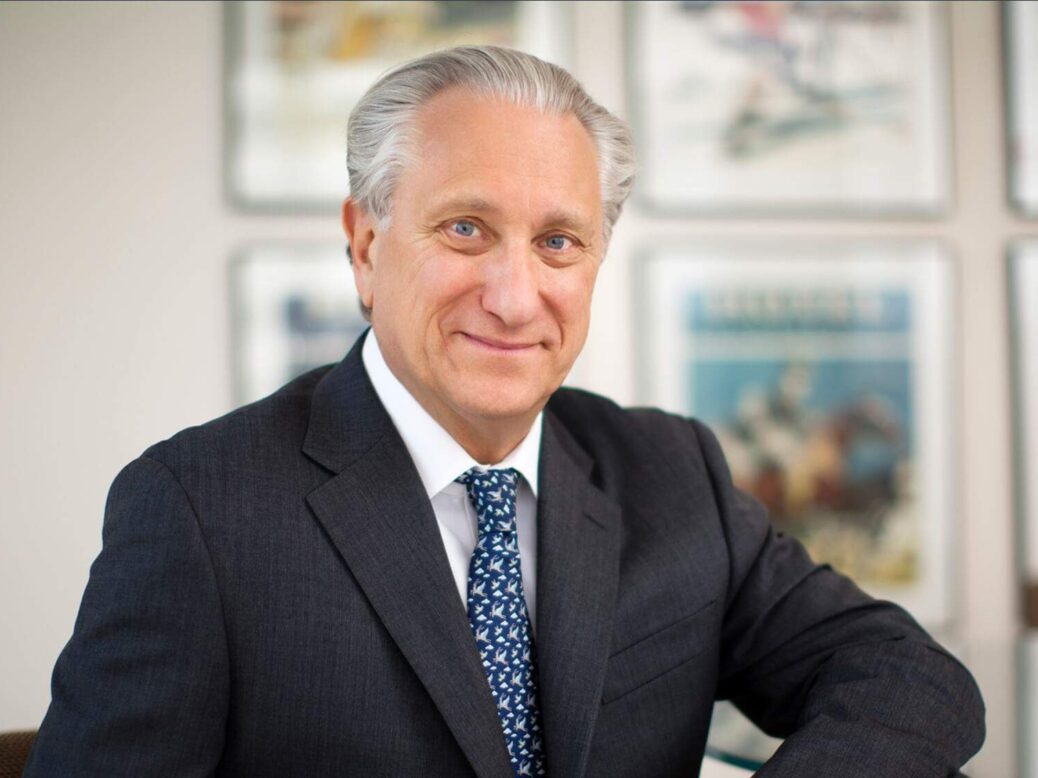
British-born real estate investor Laurence Geller on how he became a ‘serial philanthropist’
Interview by Rasika Sittamparam
I made my first million in 1982. I realised I could make money by making a hotel chain better. If you could buy a hotel, take the brand off it, and offer it to other hotel companies – it’s worth probably 10-15 per cent more. Same bricks! I formalised hotel asset management in the States and they called me ‘the legend and the father’, which is frankly a bit off, because I’m not that old.
I’ve lost my money many times. I bought and built Holiday Inns in the oil patch, from places you’ve never heard of in Louisiana. I was doing great – refinancing, borrowing 100 per cent, wasting money on toys, planes, until oil went to $14 a barrel. When oil companies stopped exploring, people never came to my crappy hotels. But I look at my life as a movie, not as a photograph. You can have good times, bad times, but at the end of it you’ve got to add up.
My Jewish upbringing instilled within me the culture of giving. My community maintained their ethos after World War II – all for one, one for all. I supported my parents and my sister and her family, and other people’s families. When my ex-wife and I moved to Chicago, we agreed that we should start supporting charities in a more serious way. I started teaching my children the three Ws of giving: work, wealth and wisdom. If you prepare to take on a charity and work for it and give them wisdom, money – then do it all. The most precious gift you can gift is of yourself. If you’re not prepared to do that, money is just a band-aid.
The most visible gift was supporting the Children’s Memorial Hospital in Chicago. It was a $600 million project, possibly $1 billion, and I headed up the architectural committee and gave a lot of money.
Ten years ago, my late father introduced me to the CEO of the Alzheimer’s Society in London. They said, ‘Come on board,’ and I thought what they really meant was for me to write a big cheque or organise a fundraiser, not give them my crazy philosophy on what they should spend it on. But they welcomed my thoughts. It was clear to me that dementia was where I could make the most difference. I decided I would give 70 per cent of everything I’ve earned to charity. It’s… a lot. The last couple of years I’ve given over £2 million a year to dementia care.
I found that Winston Churchill was becoming terribly irrelevant in the UK – they were taking him off the history curriculum. I complained to Gordon Brown, who said, ‘Leave it to me,’ and improved his mentions in textbooks. I realised I could actually make a difference. That’s the time I really started giving to the International Churchill Society, which was going broke both here and in the US. I made a deal with the society, for $1 million, that they would provide all high schools, anywhere in the world, with the digital archives of the Churchill Papers. A couple of thousand schools registered.
Someone like Churchill is rare today. He was someone who would live or die by his fundamental beliefs, not by the vagaries of an opinion poll or to get elected. He’d get knocked down, and he would get back up again. He changed, he learnt and he became a good politician. Like Churchill, I have a big mouth, and in a tiny way his ideology drove me.
I fought and scratched and confronted those who orchestrated the removal of his bust from the Oval Office. Churchill, in fact, coined the term ‘special relationship’ – after fundamentally wooing Roosevelt to come into the war earlier than America would have probably done. Because I’ve known Donald Trump all these years, shall I say, it’s no accident that the British embassy asked to send the bust back to the White House just in time for Theresa May’s visit after his inauguration. And there it sits today.
Laurence Geller CBE is a part of various charities, including the Alzheimer’s Society and International Churchill Society
Read more






